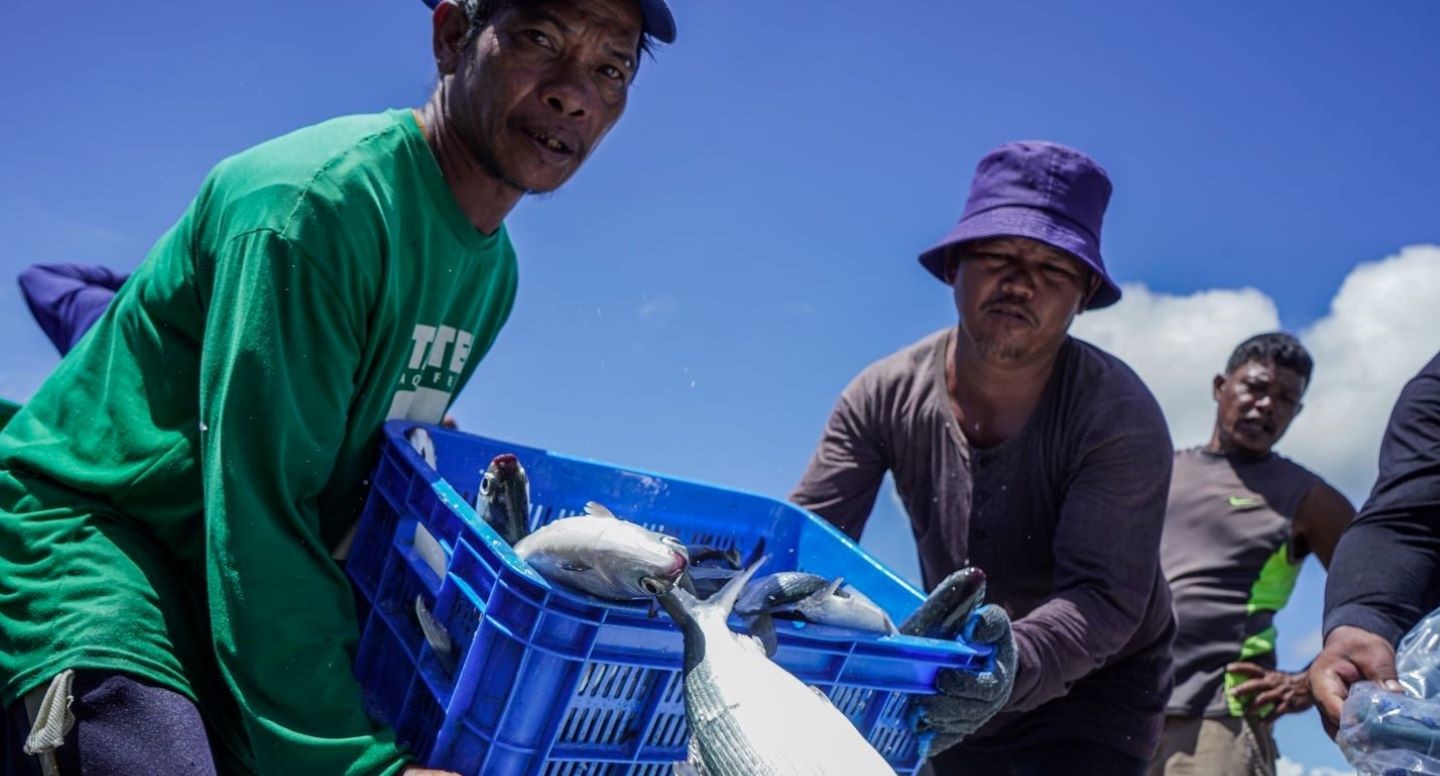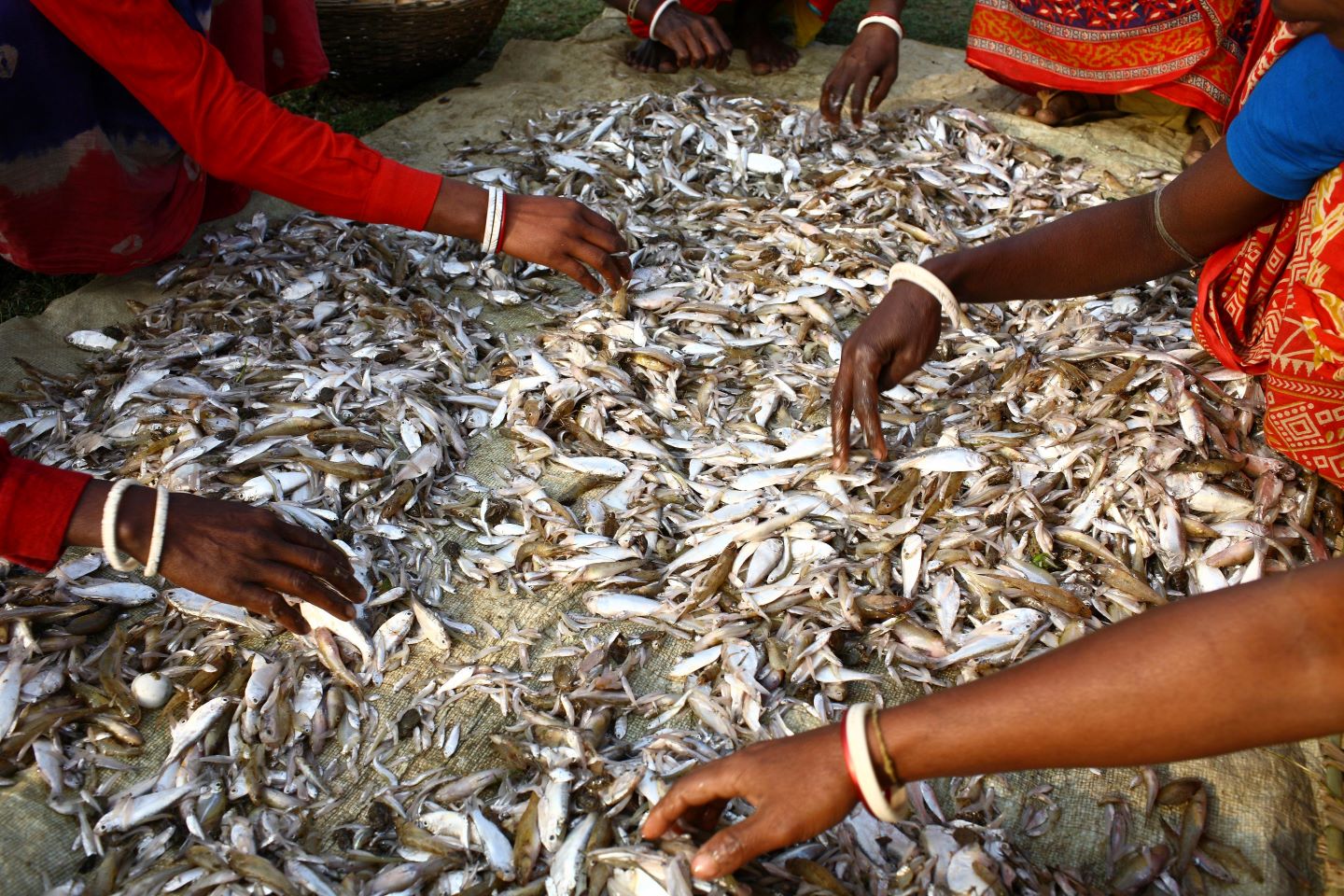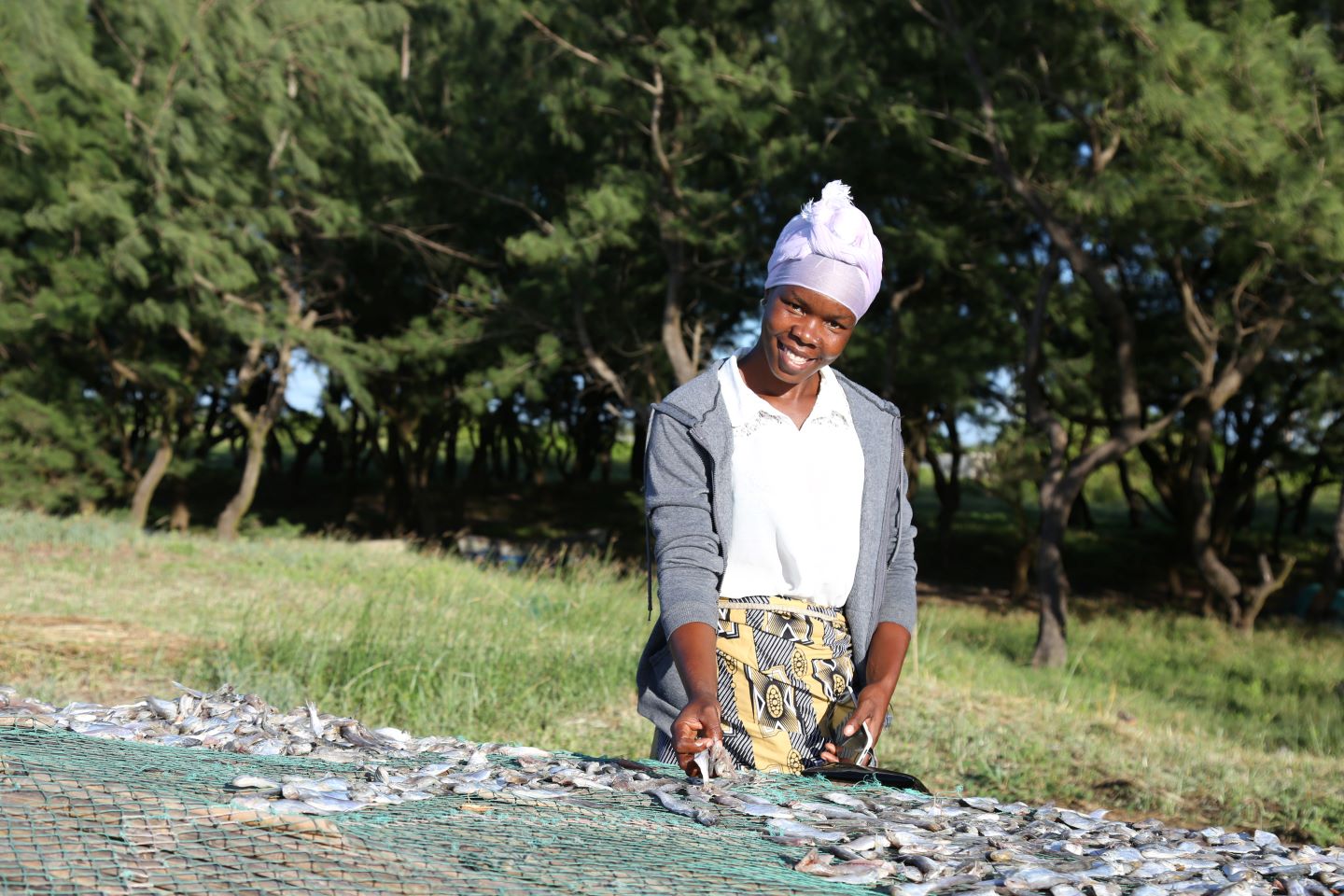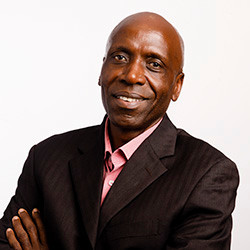As the world moves to protect oceans, we must also protect small-scale fishers
IFAD Asset Request Portlet
Asset Publisher
As the world moves to protect oceans, we must also protect small-scale fishers
Estimated reading time: 2 minutes
It has taken almost 20 years, but finally, on 4 March 2023, UN member states came to an historic agreement: to legally protect the world’s high seas. In a first of its kind, the High Seas Treaty will place a third of the world’s oceans into marine protected areas (MPAs) in a bid to reverse biodiversity loss.
The high seas—the parts of the ocean that lie outside a country’s exclusive economic zone (EEZ)—cover about half the earth’s surface. They’re full of life—from microscopic plankton that produce more atmospheric oxygen than all of the world’s tropical rainforests, to blue whales, the largest creatures that ever existed on earth.
Yet, until this historic agreement, just 1 per cent of international waters were MPAs. Without restrictions on fishing, mining and shipping, ocean biodiversity will continue to be severely affected, while climate change further threatens marine life.
The treaty aims to achieve the following goals:
- Extend MPAs by 2030 to limit overfishing and biodiversity loss, and regulate shipping lanes.
- The sustainable and equitable sharing of marine genetic resources from plants and animals for consumption or medicinal purposes among countries.
- Assess deep-sea activities, including mining.
As hope for the future of sea life is renewed and the treaty is implemented, we must also ensure that small-scale fishers, whose livelihoods depend on the sea, are also protected.
How does the Treaty affect coastal communities?

Of the 60 million people employed in the fisheries and aquaculture sector globally, over 80 per cent of them are small-scale producers, mostly in developing countries. Small-scale fishers are some of the most marginalised people in the world. Their needs are often unmet and their survival is increasingly at risk.
As fishing patterns alter following this important treaty, we must ensure that industrial fishing vessels in developing countries do not encroach into zones where small-scale fishers operate. This could harm local biodiversity, lead to overfishing and threaten the way of life of many small-scale fishers.
How does the Treaty impact IFAD projects?

At IFAD, we know how important small-scale fishers are, so we support poor small-scale fishers around the world. In the Philippines, fishing communities are sustainably managing their coastal resources with FishCORAL, while in Mozambique, ProPESCA worked to increase the quantity and value of the catch, in order to boost the incomes and livelihoods of artisanal fishers.
If large-scale fishers move from high seas to artisanal zones, IFAD project participants will be forced to compete for resources, their habitats will be harmed and the biodiversity sustained by our projects will be in jeopardy.
For far too long, we’ve treated the high seas as a Wild West where fishing corporations can exploit natural resources without regard for the biodiversity that keeps global ecosystems going. Now, we’ve finally recognised that the high seas are a crucial part of our shared inheritance and must be protected by law. As part of this, IFAD will continue to ensure that the people of coastal communities are represented and protected.
Publication date: 08 March 2023